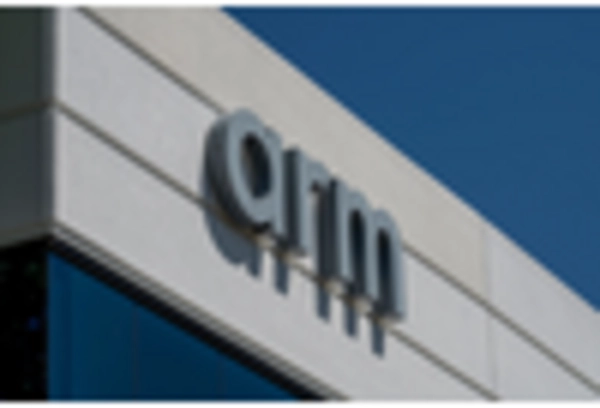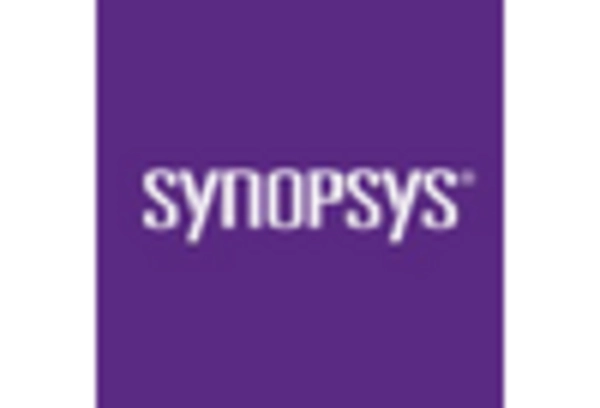Expansion of 5G Technology
The rollout of 5G technology is a pivotal driver for the semiconductor ip market in South Korea. As 5G networks become more widespread, there is a growing need for advanced semiconductor IP that can support the high-speed data transmission and low latency required by 5G applications. This demand is expected to propel the market forward, with projections indicating a growth rate of 25% in the semiconductor ip market related to 5G technologies. Companies are investing in the development of specialized IP cores that can handle the complexities of 5G infrastructure, including network slicing and massive machine-type communications. Consequently, the semiconductor ip market is likely to see significant advancements as it adapts to the evolving landscape of telecommunications.
Rising Focus on Energy Efficiency
The semiconductor ip market in South Korea is increasingly focusing on energy efficiency as a critical driver of innovation. With growing concerns about energy consumption and environmental sustainability, semiconductor companies are prioritizing the development of energy-efficient IP solutions. This shift is particularly relevant in sectors such as automotive and consumer electronics, where energy efficiency is paramount. The market for energy-efficient semiconductor IP is projected to grow by 18% in the coming years, reflecting the industry's commitment to sustainability. As manufacturers strive to meet regulatory standards and consumer expectations, the demand for energy-efficient IP is likely to shape the future landscape of the semiconductor ip market.
Growing Demand for IoT Applications
The proliferation of Internet of Things (IoT) devices is significantly impacting the semiconductor ip market in South Korea. With an estimated 30 billion connected devices expected by 2025, the demand for specialized semiconductor IP tailored for IoT applications is on the rise. This trend is prompting semiconductor companies to develop low-power, high-efficiency IP cores that cater to the unique requirements of IoT devices. The market for IoT-related semiconductor IP is anticipated to grow at a CAGR of 20% over the next five years, indicating a robust opportunity for innovation and investment. As industries increasingly adopt IoT solutions, the semiconductor ip market is likely to expand, driven by the need for reliable and scalable IP solutions.
Technological Advancements in Semiconductor Design
The semiconductor ip market in South Korea is experiencing a surge due to rapid technological advancements in semiconductor design. Innovations in design methodologies, such as system-on-chip (SoC) architectures, are enabling more efficient and powerful chips. This evolution is driven by the increasing demand for high-performance computing and mobile devices. In 2025, the market is projected to grow by approximately 15%, reflecting the need for advanced semiconductor solutions. Furthermore, the integration of artificial intelligence (AI) and machine learning (ML) into semiconductor design processes is enhancing the capabilities of IP cores, making them more versatile and efficient. As a result, companies are investing heavily in R&D to develop cutting-edge IP solutions, thereby propelling the semiconductor ip market forward.
Increased Investment in Semiconductor Manufacturing
In South Korea, the semiconductor ip market is benefiting from increased investment in semiconductor manufacturing capabilities. The government has announced plans to invest over $200 billion in the semiconductor sector by 2030, aiming to enhance the country's position as a leader in semiconductor technology. This influx of capital is expected to boost the development of advanced semiconductor IP, as manufacturers seek to create more sophisticated and competitive products. Additionally, the establishment of new fabrication facilities is likely to create a demand for specialized IP that can optimize production processes. As a result, the semiconductor ip market is poised for growth, driven by these substantial investments in manufacturing infrastructure.














